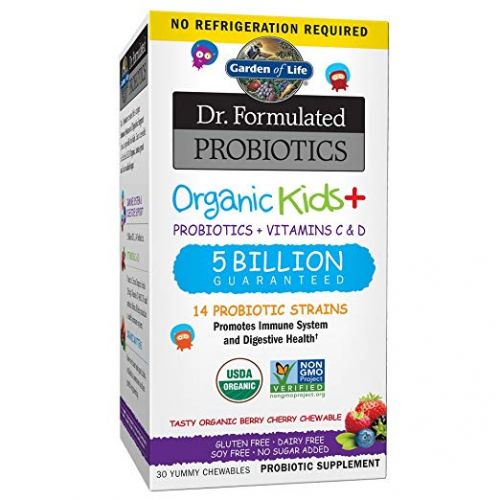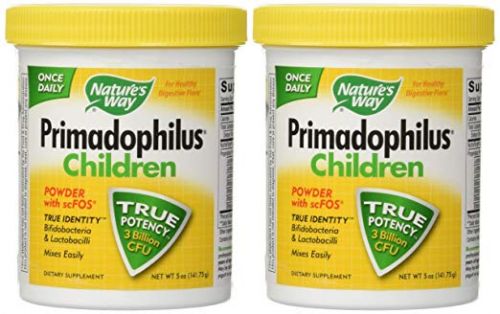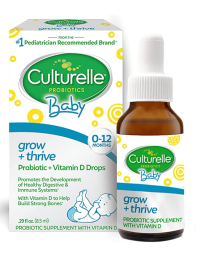A healthy gut microbiome is important for proper development during childhood. Additionally, some strains can help manage diseases like acute gastroenteritis and diarrhea. Probiotic supplements may be beneficial for your child’s health, but you should consult with your pediatrician before starting any supplemental regimen.

The gut microbiome - the ecosystem of bacteria, yeast, fungi, and other microorganisms in the intestines - plays many important roles in health throughout the body. By the age of two, your child’s gut microbiome has been established and is similar to that of adults. The types of microbial species present and the size and proportion of their populations influences the development of bodily systems beyond just the digestive system; functional development of the pancreas, skeleton, brain, and even hormone pathways are affected by the health of a child’s microbiota.1
There are several ways this happens, and the reasons are not all fully understood yet. The first and most apparent way is because of how beneficial microbes aid digestion. They can digest large molecules that the human body cannot by itself, like insoluble fibers, and convert them into nutrients that are easily absorbed into the bloodstream. Some strains also produce essential nutrients like vitamin K and B vitamins. Indirectly, this influences the body’s metabolism, and a healthy microbiome can lead to improved glucose tolerance later in life. These microbes also manage inflammation and pathogens in the gut, which in turn have a profound impact on the developing immune system.1,2

Probiotics Strengthen Children’s Immune Systems
An important part of childhood development is the growth and training of the immune system. In the early years, your child’s immune system (white blood cells like B-cells, T-cells, and macrophages) must learn to recognize which cells and molecules are part of the body’s beneficial microbiome, and which are harmful and must be eliminated. A large portion of immune cells inhabit or pass through the intestinal lining, monitoring the microbes there. By regular exposure to “good” microbes, the immune system learns to recognize them and not trigger an inflammatory response to these symbiotic organisms.3
An imbalanced gut microbiome can lead to an improperly trained immune system, and dysregulated inflammation in the intestines and the rest of the body. Excess inflammation in turn can contribute to a number of different disorders, such as inflammatory bowel diseases, allergies, rheumatoid arthritis, and even certain types of autism.3,4 Few studies have been done on the efficacy of probiotics for most of these conditions, but probiotic supplementation during infancy and early childhood can reduce the risk of developing allergies, including food allergies, dermatitis, and seasonal allergies.5,6 Probiotics can also help prevent children from contracting certain respiratory and gastrointestinal infections.7

Probiotics can Help Prevent and Alleviate Diarrhea
Probiotics have not been studied nearly as extensively in children as they have been in adults. So far, the main conclusive advantage for probiotic supplementation in children is treating and preventing diarrhea. Diarrhea is a common side effect of antibiotic treatment, particularly in children. Restoring populations of beneficial bacteria with probiotics can reduce the incidence and severity of diarrhea during and after a course of antibiotics.8 Similarly, probiotics can help reduce the symptoms of acute gastroenteritis, shortening the duration of diarrhea and helping prevent dehydration.7
The most well-studied strain of probiotic for managing diarrhea has been Lactobacillus RhamnosusGG, though a few other Lactobacillus and Bifidobacteriastrains have proven effective as well.
Probiotics have not been studied nearly as extensively in children as they have been in adults. So far, the main conclusive advantage for probiotic supplementation in children is treating and preventing diarrhea. Diarrhea is a common side effect of antibiotic treatment, particularly in children. Restoring populations of beneficial bacteria with probiotics can reduce the incidence and severity of diarrhea during and after a course of antibiotics.8 Similarly, probiotics can help reduce the symptoms of acute gastroenteritis, shortening the duration of diarrhea and helping prevent dehydration.7
The most well-studied strain of probiotic for managing diarrhea has been Lactobacillus RhamnosusGG, though a few other Lactobacillus and Bifidobacteriastrains have proven effective as well.

Best Probiotic Supplements for Infants
Here are a few of the top-rated probiotics made specifically for children. Again, talk to your family doctor if you are thinking of giving your child probiotics or any other supplement.
- Culturelle Probiotics Kids
- Garden of Life Dr. Formulated Probiotic Organics Kids
- Nature’s Way Primadophilus Children
- Florastor Kids Daily Probiotic Supplement
- FloraTummys Probiotic Sprinkles Kids
Here are a few of the top-rated probiotics made specifically for children. Again, talk to your family doctor if you are thinking of giving your child probiotics or any other supplement.
- Culturelle Probiotics Kids
- Garden of Life Dr. Formulated Probiotic Organics Kids
- Nature’s Way Primadophilus Children
- Florastor Kids Daily Probiotic Supplement
- FloraTummys Probiotic Sprinkles Kids
[1] Robertson RC, Manges AR, Finlay BB, Prendergast AJ. 2019. “The Human Microbiome and Child Growth- First 1000 Days and Beyond.” Trends Microbiol. Feb; 27(2):131-147. https://www.ncbi.nlm.nih.gov/pubmed/30529020
[2] Dominguez-Bello MG, Godoy-Vitorino F, Knight R, Blaser MJ. 2018. “Role of the microbiome in human development.” Jan 22; 317503. https://www.ncbi.nlm.nih.gov/pubmed/30670574
[3] De Filippo C, Di Paola M, Giani T, Tirelli F, Cimaz R. 2019. “Gut microbiota in children and altered profiles in juvenile idiopathic arthritis.” J Autoimmun. Jan 9; S0896-8411(18):30650-https://www.ncbi.nlm.nih.gov/pubmed/30638708
[4] Doenyas C. 2018. “Gut Microbiota, Inflammation, and Probiotics on Neural Development in Autism Spectrum Disorder.” Mar 15; 374:271-286. https://www.ncbi.nlm.nih.gov/pubmed/29427656
[5] Bertelsen RJ, Brantsæter AL, Magnus MC, Haugen M, Myhre R, Jacobsson B, Longnecker MP, Meltzer HM, London SJ. 2014. “Probiotic milk consumption in pregnancy and infancy and subsequent childhood allergic diseases.” J Allergy Clin Immunol. Jan; 133(1):165-171. https://www.ncbi.nlm.nih.gov/pmc/articles/PMC3912862/
[6] Cosenza L, Nocerino R, Di Scala C, di Costanzo M, Amoroso A, Leone L, Paparo L, Pezzella C, Aitoro R, Berni Canani R. 2015. “Bugs for atopy: the Lactobacillus rhamnosus GG strategy for food allergy prevention and treatment in children.” Benef Microbes. 6(2):225-232. https://www.ncbi.nlm.nih.gov/pubmed/25851101
[7] Hojsak I. 2017. “Probiotics in Children: What is the Evidence?” Pediatr Gastroenterol Hepatol Nutr. Sep; 20(3):139-146. https://www.ncbi.nlm.nih.gov/pmc/articles/PMC5636929/
[8] Plaza-Díaz J, Ruiz-Ojeda FJ, Gil-Campos M, Gil A. 2018. “Immune-Mediated Mechanisms of Action of Probiotics and Synbiotics in Treating Pediatric Intestinal Diseases.” Jan; 10(1):42.https://www.ncbi.nlm.nih.gov/pmc/articles/PMC5793270/
-
Probiotics for Infants
By Dr. AnnaMarch 8, 2022 -
Probiotics for Constipation
By Dr. KarenMarch 8, 2022 -
Best Time to Take Probiotics
By Dr. KarenMarch 8, 2022
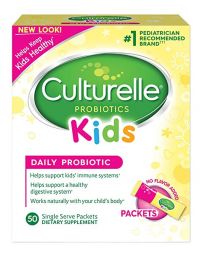
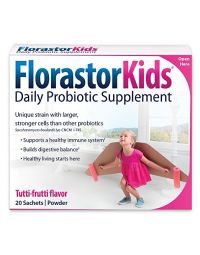
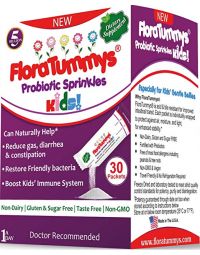
Search the blog
Article Categories
- All Articles (95)
- Rating Charts (1)
- Beauty & Skincare (17)
- FAQ (0)
- Hair Care (9)
- Health & Wellness (12)
- Anti-Aging (4)
- Kid's Health (0)
- Makeup (2)
- Men's Health (2)
- Oral Care (3)
- Sunscreen (7)
- Skin Tools & Treatments (10)
- Supplements (26)
- Videos (0)



